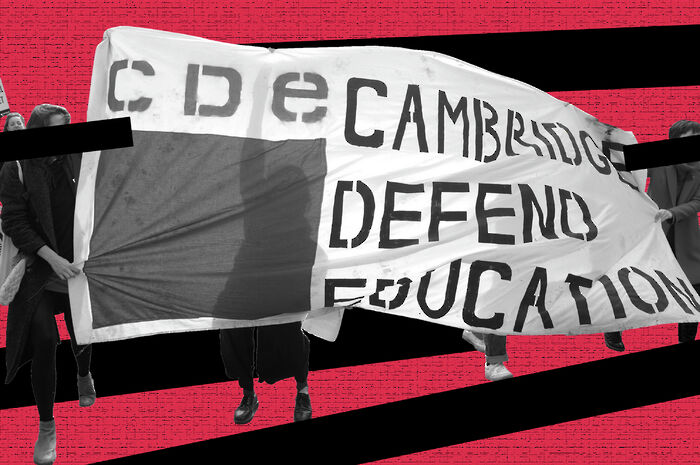Ballot closes on possibility of further strike action
An open letter to Toope, published this month by the UCU and UNISON Cambridge branches, urged the vice-chancellor to support “action to address the spread of precarious contracts and pay inequality”

Industrial action may once again hit the University as final votes are cast in a strike ballot concerning higher education (HE) pay. The ballot, set by the University and College Union (UCU), will close this Friday, 19th October.
UCU members can vote “yes” or “no” to strike action, called in response to declining values of pay, pay inequality, workforce casualization and increasing workload in the HE sector. The UCU is the biggest trade union in the UK for HE staff and therefore strike action would impact 147 universities, including Cambridge.
Earlier this year, the Universities and Colleges' Employers Association (UCEA) made a final pay-rise offer of 2%. The offer was subsequently rejected by the UCU on the grounds that the “below-inflation pay offer does nothing to address years of decline in the value of higher education pay”.
The UCU claims the proposed 2% pay rise falls short of the 3.5% inflation rate and that HE pay has decreased by 21% in comparison to RPI (retail price index) increases since 2009. They have further criticised disproportionate increases in the salaries of university vice-chancellors. Cambridge’s vice-chancellor, Stephen Toope, was last year forced to defend his £365,000 salary.
[Toope’s] commendable words [should be] backed by action
An open letter to Toope, published this month by the UCU and UNISON Cambridge branches, urged the vice-chancellor to support “action to address the spread of precarious contracts and pay inequality.” They referenced an email sent by Toope to University staff in which he expressed the University’s commitment to “a higher uplift in basic pay than 2%”, regardless of national HE pay changes.
The open letter emphasised that Toope’s “commendable words” should be “backed by action”.
Unions are legally required to demonstrate at least 50% voting turnouts before industrial action can be called, in accordance with the 2016 Trade Union Act, so strike action will only proceed if more than half of UCU members vote in the ballot, irrespective of the ballot’s outcome.
The legal firm, Pinsent Mason, was criticised by the UCU this month for suggesting universities advise their employees to abstain or vote against strike action in order to “influence the outcome of the ballot at their centre while they still can.”
The UCU condemned this advice as a “dangerous campaign”, adding, “education institutions should be defending democratic values not seeking to discourage their own staff from participating in a democratic vote.”
Strike action was supported by 65% of UCU consultation respondents with a 47.7% turnout in June 2018. In the Cambridge UCU consultation, support was even higher; over 90% of members rejected the UCEA’s offer and 76% supported strike action, while turnout at the Cambridge branch well exceeded 50%.
Unprecedented industrial action struck the University of Cambridge last year, with over 1,000 staff members joining picket lines over pension disputes.
 Features / 3am in Cambridge25 June 2025
Features / 3am in Cambridge25 June 2025 Comment / Why shouldn’t we share our libraries with A-level students?25 June 2025
Comment / Why shouldn’t we share our libraries with A-level students?25 June 2025 News / Pro-Palestine protesters establish King’s Parade encampment after city-wide march25 June 2025
News / Pro-Palestine protesters establish King’s Parade encampment after city-wide march25 June 2025 News / University hosts open meeting about research and investments linked to defence companies 24 June 2025
News / University hosts open meeting about research and investments linked to defence companies 24 June 2025 News / Magdalene evicts pro-Palestine encampment24 June 2025
News / Magdalene evicts pro-Palestine encampment24 June 2025






